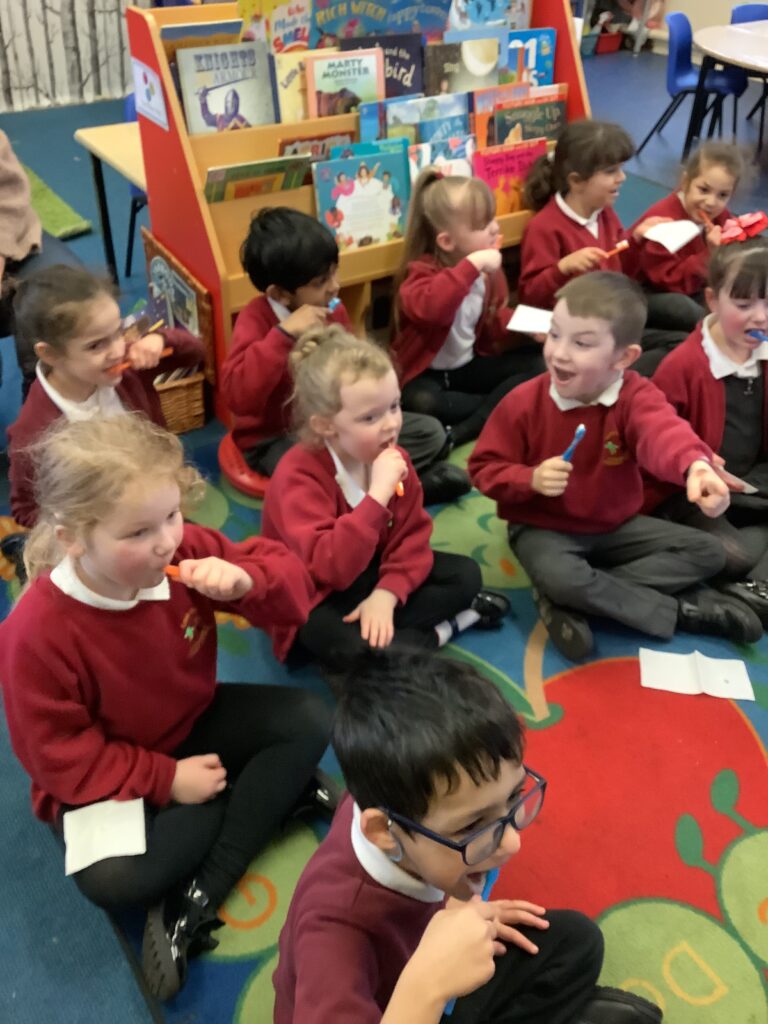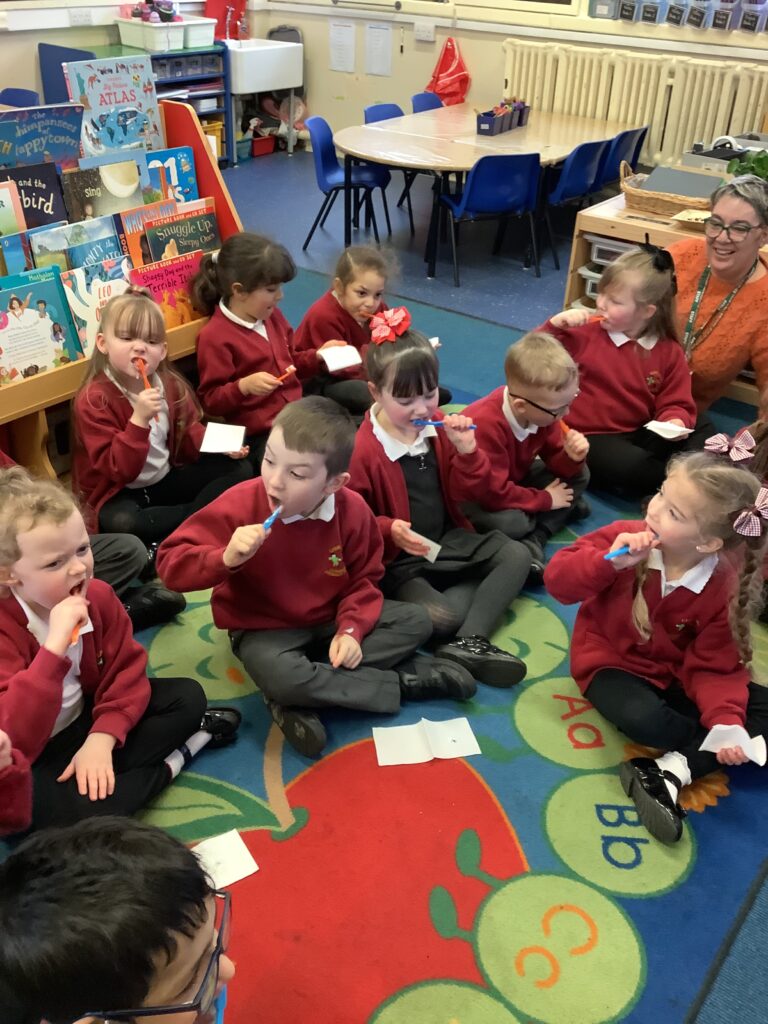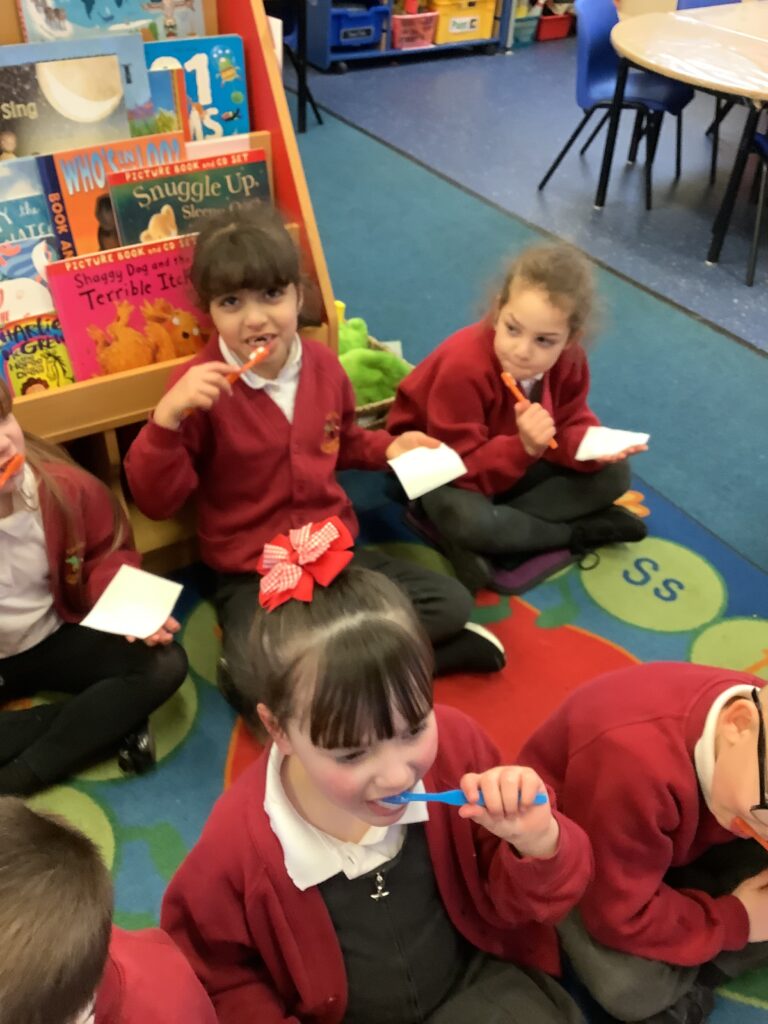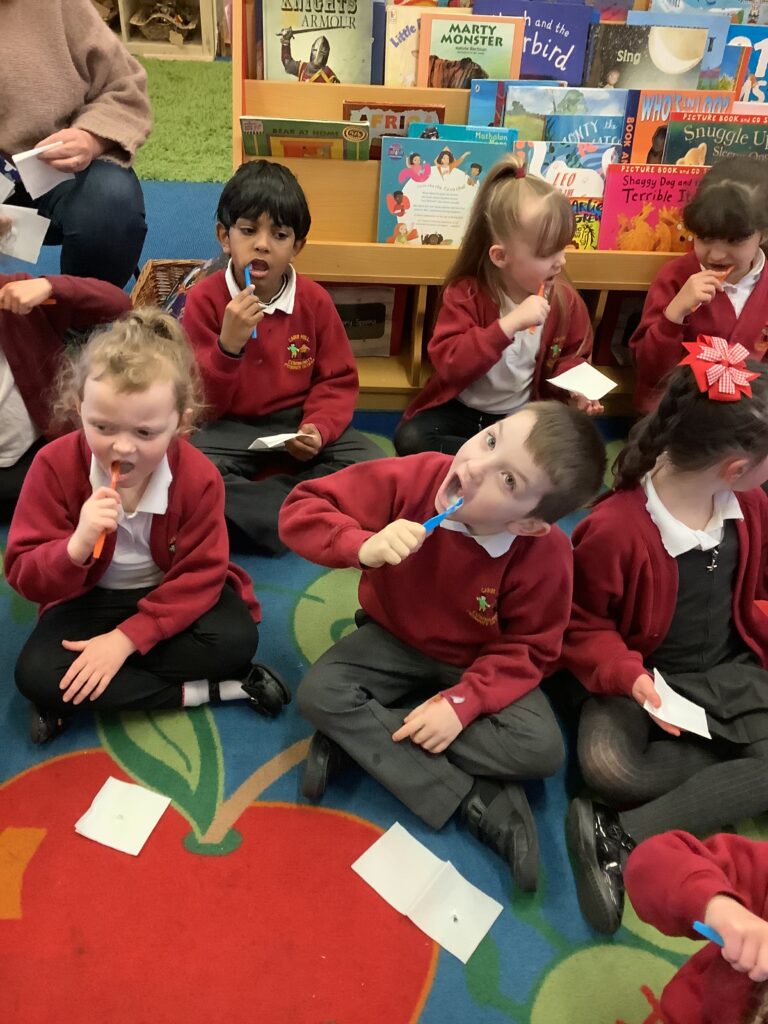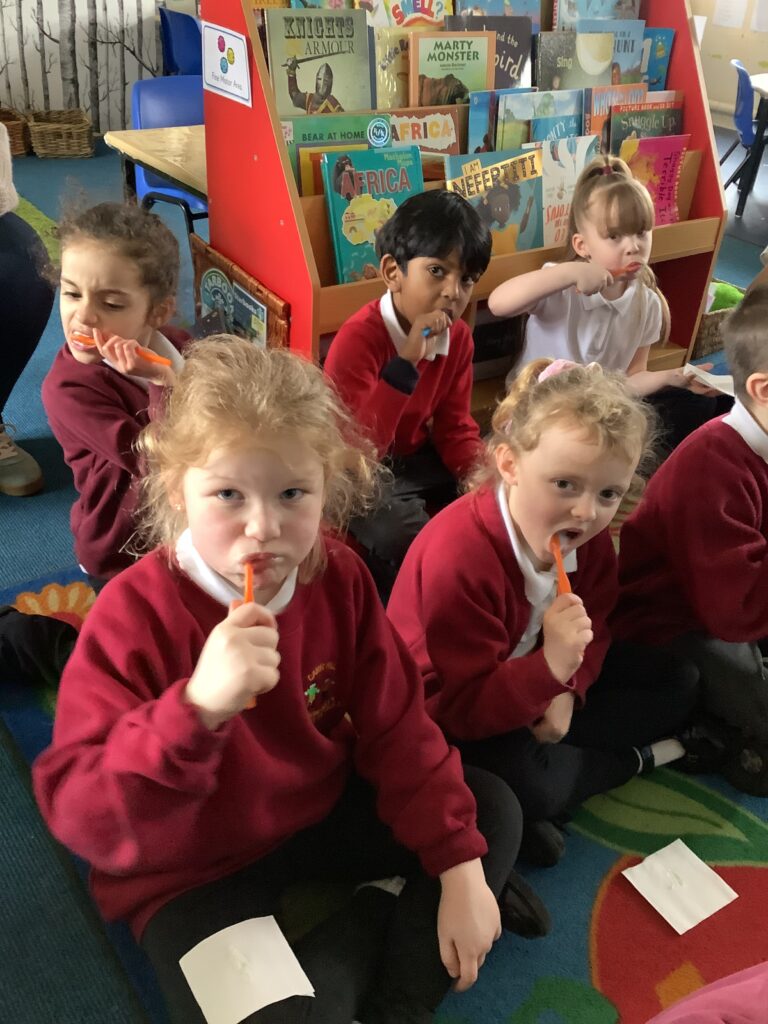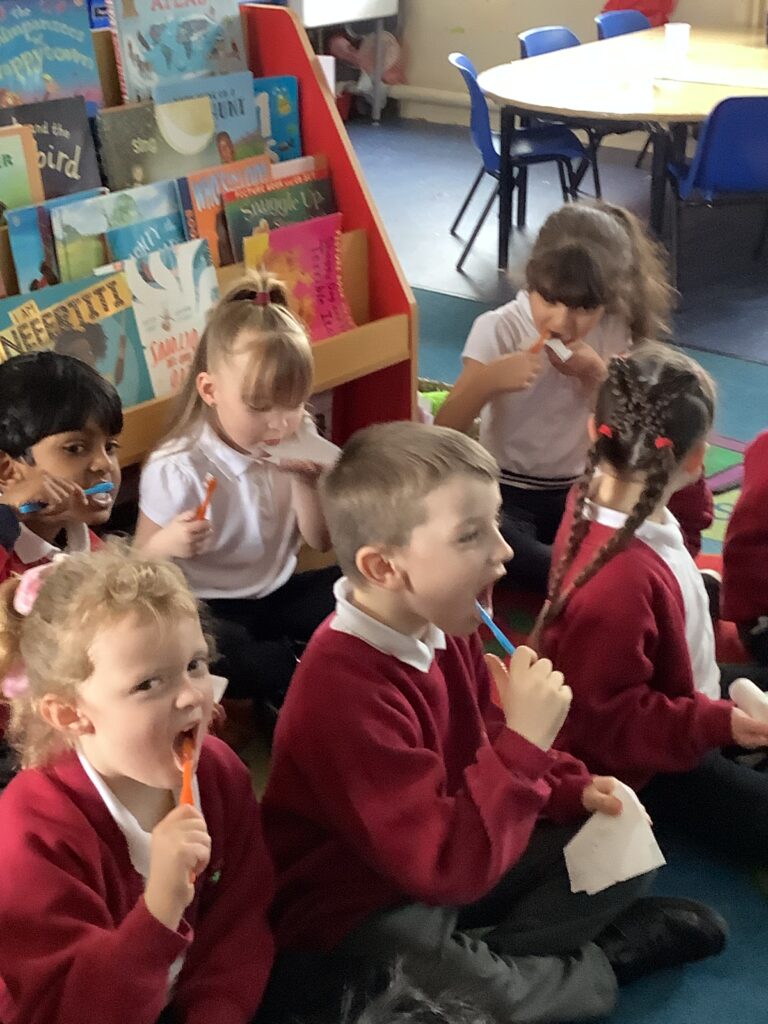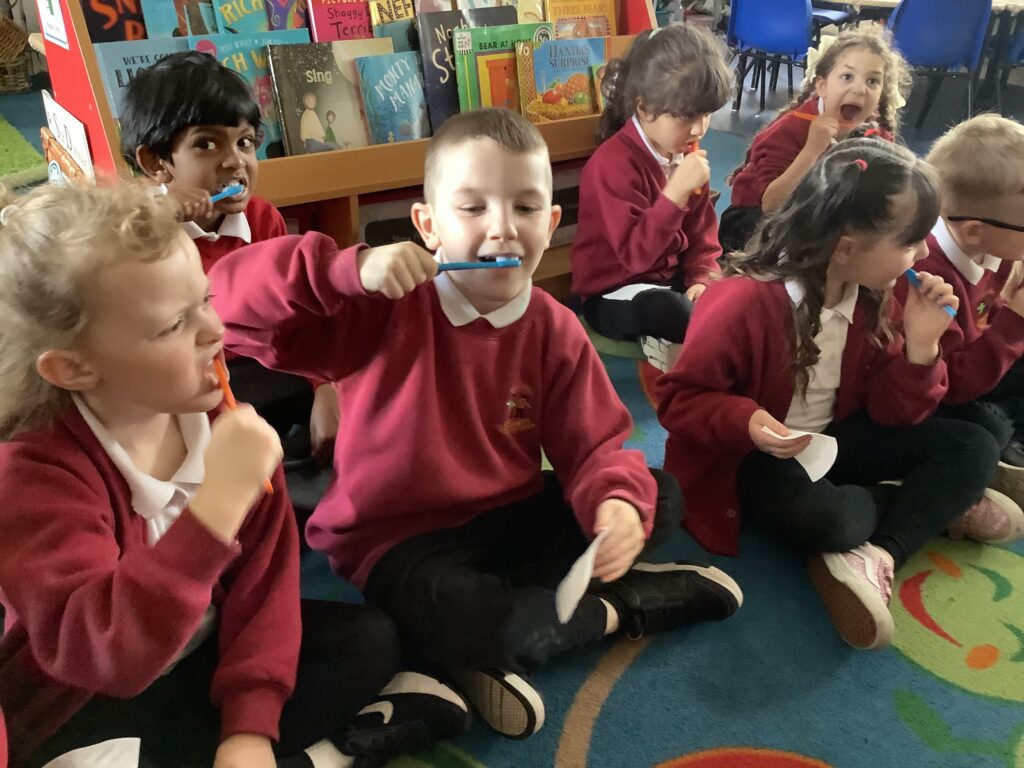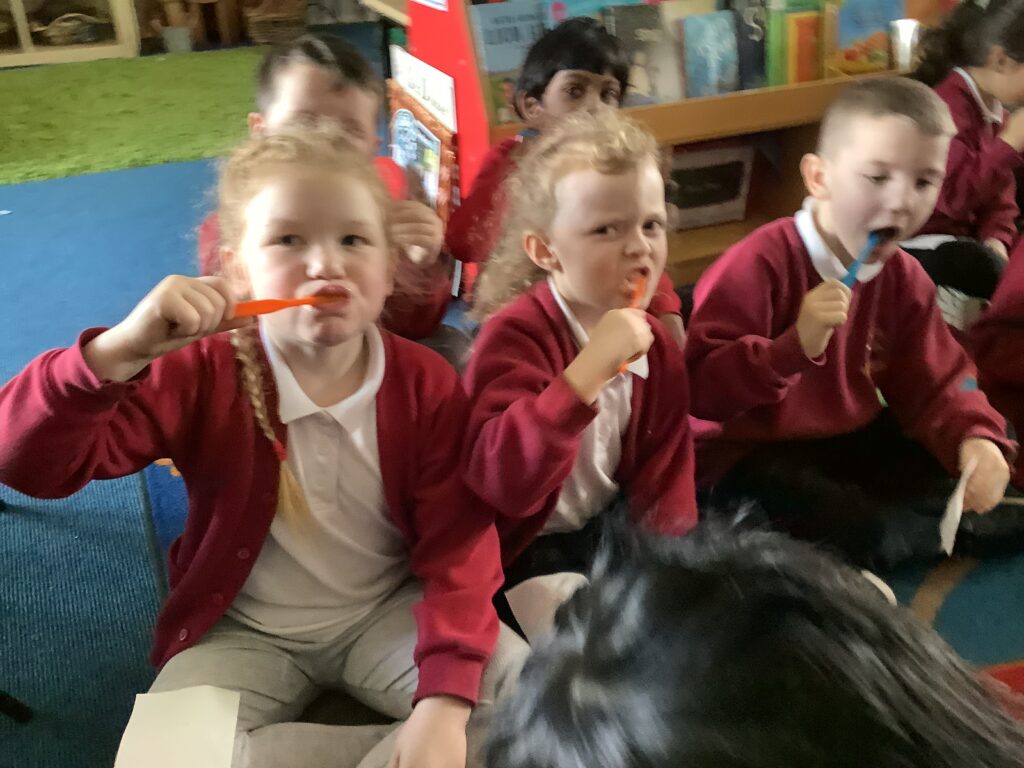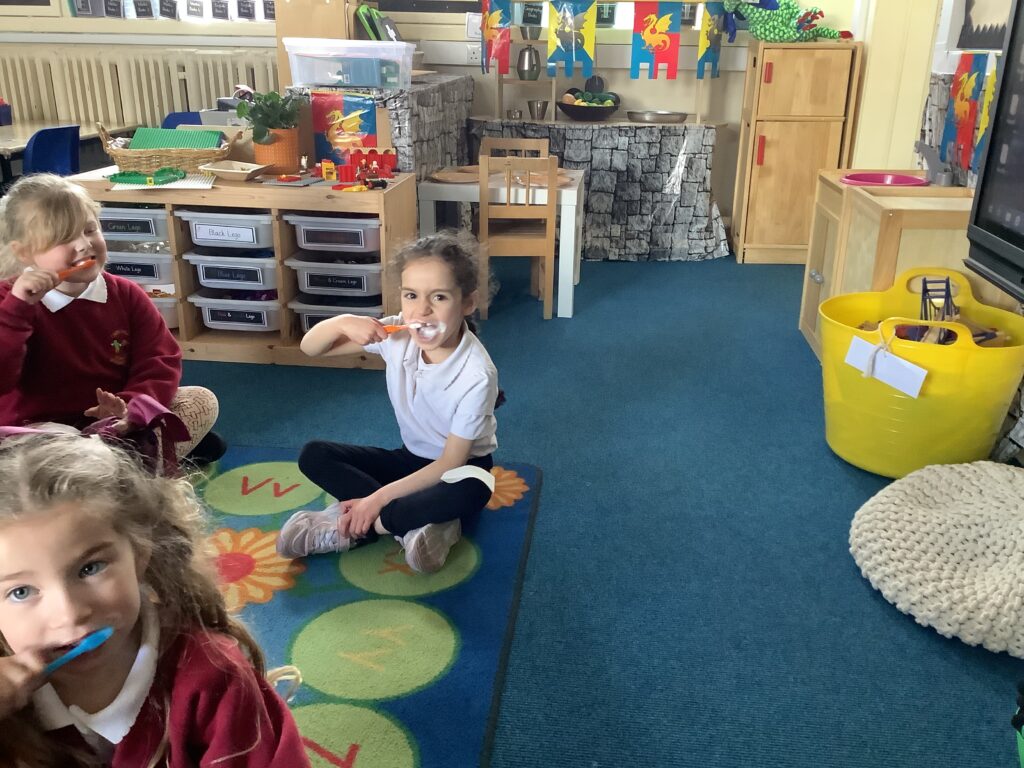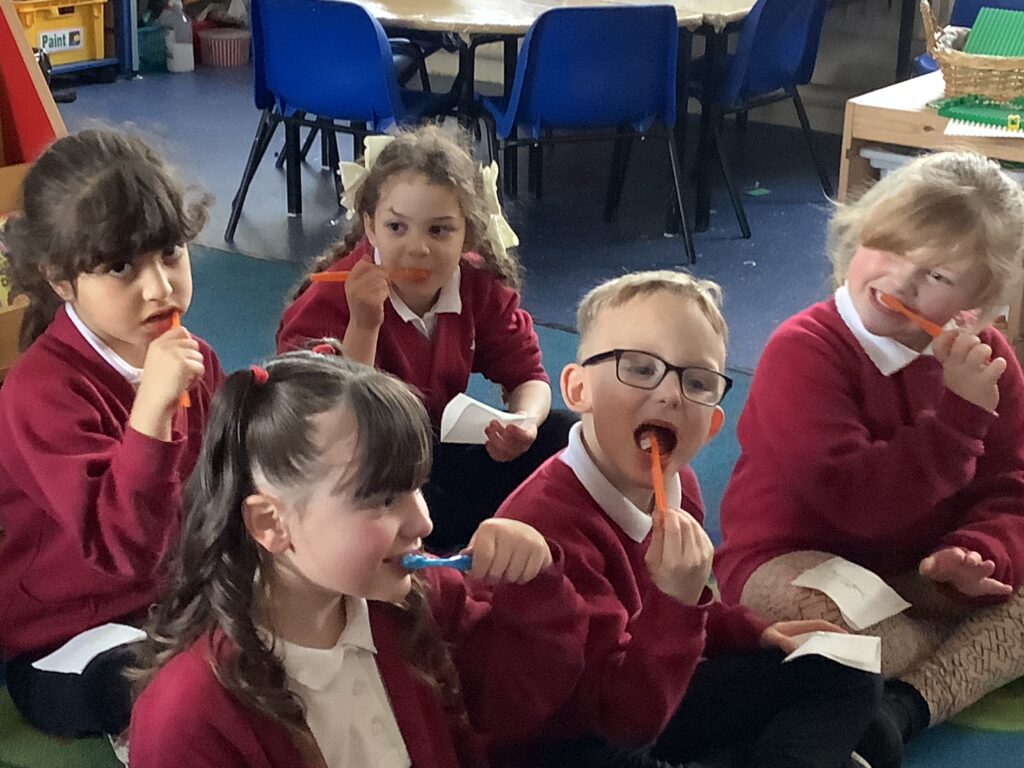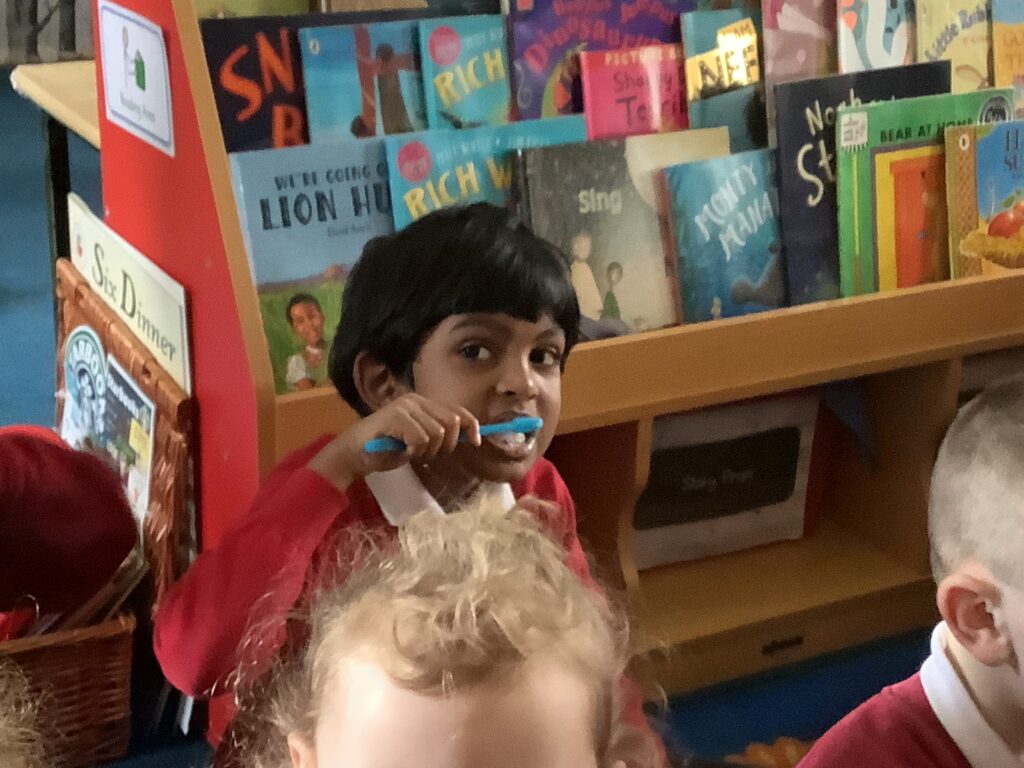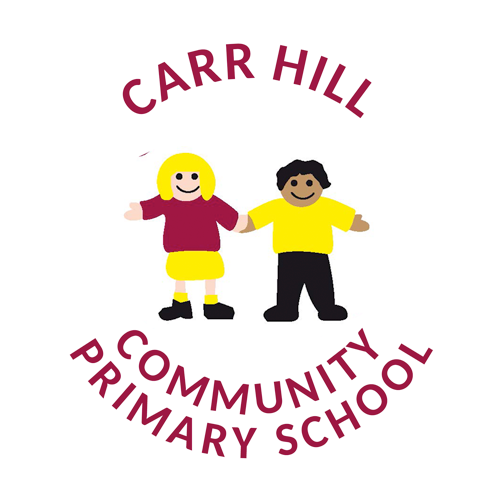At Carr Hill Community Primary School, we are committed to supporting the emotional health and wellbeing of all our pupils, parents and staff. We understand that everyone experiences challenges in life that can make us vulnerable and at times, anyone may need additional support in some way. We take the view that positive mental health is everybody’s business and that we all have a role to play.
As a school, we take mental health and wellbeing very seriously and we are passionate about giving our children the skills to keep their minds and bodies healthy . We are currently working towards a Wellbeing award, which will demonstrate how wellbeing and mental health in our pupils, staff and parents are at the forefront of our school’s vision of leading a mentally healthy school.
Mental Health and Wellbeing Statement
At our school we:
- help children to understand their emotions and feelings better
- help children feel comfortable sharing any concerns or worries
- help children socially to form and maintain relationships
- promote self-esteem and ensure children know that they count
- encourage children to be confident and ‘dare to be different’
- help children to develop emotional resilience and to manage setbacks
We offer different levels of support:
Universal Support – To meet the needs of all our pupils through our overall ethos and our wider curriculum. For instance, developing resilience for all.
Additional support – For those who may have short-term needs and those who may have been made vulnerable by life experiences such as bereavement.
Targeted support – For pupils who need more differentiated support and resources or specific targeted interventions such as wellbeing groups or personal mentors.
We all have times when we have low mental well-being, where we feel stressed, upset or find it difficult to cope. There are some common life events that may affect you or your child’s mental wellbeing:
- Loss or bereavement.
- Loneliness
- Relationship problems.
- Issues at school.
- Worries about money.
Everyone deserves to feel good and there are steps you or your child can take to maintain and improve your mental wellbeing:
- Build positive relationships.
- Take time for yourself.
- Look after your mental health.
- Look after your physical health.
What can your child do in school to gain mental wellbeing?
- Be open and talk about your feelings with your friends.
- Associate yourself with positive people.
- Join an afterschool club.
- Speak to a member of staff.
- Get physically active (a healthy body and mind are closely linked).
RISE
We work closely with the RISE team to offer children support around their mental health and wellbeing.
RISE is part of the Newcastle Gateshead ICB, NHS and DFE Mental Health in Schools programme. They work in schools and colleges and support young people with moderate mental health needs. This could mean working directly with individual students, running group sessions, or helping teachers shape lesson plans or assemblies.
RISE, offer low intensity support for children and young people coping with mild to moderate mental health needs. Our Education Mental Health Practitioners will tailor sessions based on young person needs but themes may include:
- Anxiety
- Low mood
- Emotional literacy and regulation
- Low confidence/self-esteem
- Sleep
- Exam stress
RISE’s website offers lots of support and advice https://rise.childrenssociety.org.uk/about-rise
Personal Development
At Carr Hill Community Primary School, we recognise that the time our children spend in their primary years are a key time for children to develop their own identity and aspirations for the future. As well as academic development, it is essential that children are given opportunities, through the curriculum and beyond, for Personal Development. We understand the crucial role we play in helping children to prepare for the transition into their adult lives so they can go on to engage positively and successfully in society. The opportunities we can offer them while at Carr Hill are well thought out and we believe will impact upon their future, helping them to develop the core values we teach and hold at Carr Hill Community Primary School.
Extracurricular Activities
Extracurricular support in school includes: Football clubs, Multisport clubs, Dance club, Basketball Club, Golf Club, International Art club, Sketch club, Games club, Gymnastic club, Breakfast Club.
Our Aims
Our aim is to teach children how to navigate through life safely, happily and in a way that is healthily. Children are growing up in a world that is constantly changing, and it is the duty of all the staff at school in partnership with the parents teach the children transferable life skills. We teach children about the world around them, relationships, emotions, reproduction and health, as well as transferable skills to help with life. We consistently promote the British values and our school values.
Here at Carr Hill Community Primary School, we teach personal development in a wide range of ways throughout the children’s school lives. For example:

We aim to ensure all of our children have had at least the following 12 opportunities with us before they leave Carr Hill to head to new schools and turn 12!
All children will:
- Access to our local libraries to further develop ‘a love’ for reading!
- Visit places of religious significance in the local community including our local church, mosque, temple and synagogue
- Take part in our amazing Sports Day at Gateshead International Stadium
- Represent the Carr Hill Community Primary School in a sporting event or festival
- Visit the cinema during ‘Film Week’
- Early Years – Visit a farm, the beach and the woods!
- Year 1- Real life Animal Experience
- Year 2- Visit to a local museum
- Year 3- Visit a local art gallery
- Year 4- visit Whithaugh Park in the Scottish Borders for an amazing residential visit full of adventure, challenge, teamwork and independence!
- Year 5- support in the local community at the church, local care home, community gardens and in the school playground as young leaders!
- Year 6-visit London on a residential visit and the Houses of Commons!
Our Personal Development Overview
Support and Resources
National Helplines for Adults and Children
Childline
A place a child or young person can talk to someone about something they are worried about. They can do this online or over the phone. (call08001111)
NSPCC
This charity works against child abuse – a helpline is available for parents or other adults concerned about a child (0808 8025544).
The Samaritans
A confidential helpline which offers support and advice to those in emotional distress. (call 116 123)
Young Minds
Young Minds is the UK’s leading charity committed to improving the emotional wellbeing and mental health of children and young people.
Women’s Aid
Information and support for women experiencing domestic violence
Advice on Depression, Anxiety, ADHD & Self-Harm
Young Minds
Parents Helpline
0808 802 5544 (9.30 to 4.00pm, Mon- Fri)
www.youngminds.org.uk
We offer free, confidential online and telephone support, including information and advice, to any adult worried about the emotional problems, behaviour or mental health of a child or young person up to the age of 25.
Payrus
Charity working to prevent young suicide with a helpline for those worried about themselves or someone they know (call 0800 068 4141; text 0778 620 9697).
Saneline
Telephone: 0300 304 7000 (4:30pm-10:30pm)
www.sane.org.uk/what_we_do/support/helpline
Saneline is a national mental health helpline providing information and support to people with mental health problems and those who support them.
General Mental Health Advice and Support
Calm
The Campaign against Living Miserably aims to reduce suicide rates among young men in the UK.
Kooth
https://www.kooth.com/
Online counselling and support for children and young people.
The Mix
Mental health information and support for the under-25s.
Time to Change
https://www.time-to-change.org.uk/Personal stories from young people about why mental health matters.
The Youth Wellbeing Directory
Online resource for families and young people up to the age of 24 listing local mental health services in their area.
Anxiety
No Panic
https://nopanic.org.uk/Helpline for young people who suffer from panic attacks, OCD, phobias, and other related anxiety disorders (call 0330 606 1174).
Bereavement
Mosaic family Support – Call 01258 837071
Supporting bereaved children
Winston’s Wish – Call 08088 020021
Supports bereaved children, young people and their families
Bipolar
Bipolar UK
Offers information about bipolar disorder, an online community, and a peer support line.
Bullying
Bullying UK
https://www.bullying.co.uk/Advice and support for dealing with bullying.
RespectMe
An anti-bullying service working with adults involved in the lives of children and young people to give them the practical skills and confidence to deal with children who are bullied and those who bully others.
Depression
Charlie Waller Memorial Trust
https://www.cwmt.org.uk/
Includes information for children and young people on how to recognise the signs of depression.
My CAMHS Choice
https://www.annafreud.org/on-my-mind/receiving-support/
Information and support for young people who have been referred to the CAMHS system.
Drugs and alcohol
Addaction
Information about drug and alcohol problems.
Nacoa
Information and support for children and young people affected by a parent’s alcohol use.
Eating disorders
Beat Eating Disorders
https://www.beateatingdisorders.org.uk/Helplines, online support and self-help groups on all types of eating disorder.
Hearing voices
Voice Collective
http://www.voicecollective.co.uk/
Resources for young people who hear, see and sense things that others don’t. Support for parents is also offered.
Medication
Head Meds
https://youngminds.org.uk/find-help/medications/
Information for young people around medication, mental health and life.
OCD
OCD UK
https://www.ocduk.org/Information and support on OCD, including online support forums.
Self-harm
Life Signs
https://www.lifesigns.org.uk/Information and support on self-harm in children and young people.
National Self-Harm Network
http://www.nshn.co.uk/
A forum providing crisis support, resources and advice on dealing with self-harm.
Recover Your Life
http://www.recoveryourlife.com/
Information and support around self-harm. Includes forums, online chat, open 24/7.
Self Harm UK
Information for parents and professionals on self-harming behaviour.
List of Wellbeing Apps for Children
Headspace
Live a happier, healthier life with just a few minutes of meditation a day on the Headspace app.
KOOTH
XenZone is a provider of online mental health services for children, young people and adults.
Colorfy
https://apps.apple.com/us/app/colorfy-art-coloring-game
Colorfy is a lovely colouring mindfulness app that first started off in print version. Based in science of creativity and how colouring can create a feeling of flow that is associated with a meditative state. It is beautiful, and just looking at the lovely colours made me feel happy. You can paint from pre-loaded templates or even create your own.
The Mix
The Mix is the UK’s leading support service for young people. We are here to help you take on any challenge you’re facing – from mental health to money, from homelessness to finding a job, from break-ups to drugs. Talk to us via online, social or our free, confidential helpline.
Stop Breathe and Think App
Check in with how you’re feeling and try short activities tuned to your emotions
Smiling Mind App
https://www.smilingmind.com.au
A great app with age specific mindfulness resources, including a new resource, ‘Thrive Inside’. Thrive Inside is a special program to help you stay psychologically healthy while you’re spending extended periods of time at home.
Cosmic Yoga and Mindfulness App
This app often has a two- week trial available
Oral Health
Our Oral Health Policy
Supervised Toothbrushing Programme
We are taking part in the NHS Schools ‘Supervised Toothbrushing Programme’. All our staff have been trained in delivering this programme and we are currently using it in our Nursery, Reception and Year One classes. We have an amazing 100% of parents and carers consenting to this programme.
